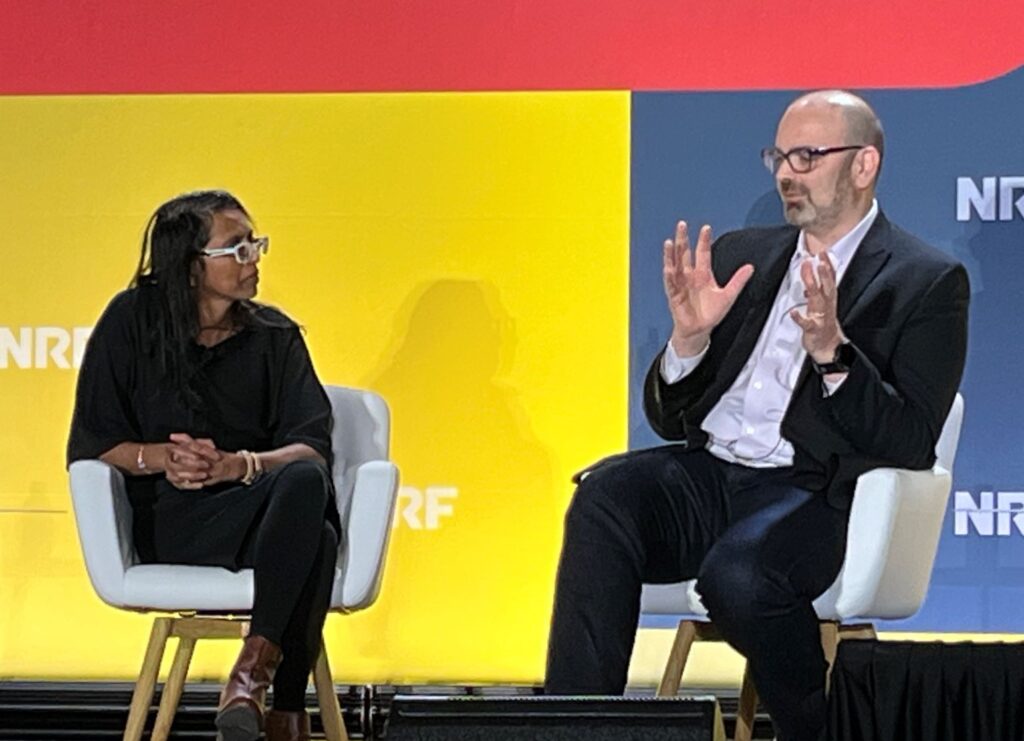Retail media networks are now the industry standard, but with seemingly countless data points to consider across a wide variety of platforms and services, working with the custom advertising platforms is “not for the faint of heart,” according to Yael Cosset, chief information officer and senior vice president of The Kroger Co.
Cosset discussed the topic, along with the general state of the supermarket industry, with Sucharita Kodali, vice president and principal analyst of Forrester Research, at the National Retail Federation’s annual Big Show convention in New York City on Sunday.
Retail media is relatively young – Forrester estimates the industry to be about $62 billion – and has a lot of room for growth, Kodali said.
“A large part of it is dominated at the moment by Amazon ads but you have a number of other players – Walmart, Kroger, Instacart, and others – definitely really, really putting a stake in the ground and working with brands to drive success there,” she said. “But it has been an industry that has just exploded, particularly during the pandemic …”
The growing advertising platforms aren’t without their problems, though, Kodali added. Forrester interviews with retail media executives revealed that the data produced often is unavailable until weeks after it was collected “which doesn’t allow us to react as quickly as other channels.”
Executives also said:
- “We are unable to purchase [ad] inventory based on geography which is critical to our needs”
- “We can only target certain pageviews, versus audiences”
- “We want more programmatic retail media buying but now have to go to 50 different people”
- “Brands just need to get used to a lack of precision”
Cosset said Kroger began developing its own retail media network in 2017 with the establishment of Kroger Precision Marketing, the grocer’s effort to make “advertising more transparent by closing the loop between media exposure and store sales,” according to KPM’s website. “Brands now learn how their media investment impacts the metrics that matter like incremental sales lift, return on ad spend, category share, and household penetration shifts.”
Cosset said it’s a challenging task to create quality audiences and “close the loop with precise measurement.”
“You’re dealing with, you know, trillions of public record data interactions and signals across multiple channels … so the sophistication of the measurement that is a place for advertisers to feel confident is critical,” Cosset said.
He said personalization of offers to customers continues to be a top priority, and the use of artificial intelligence is helping to achieve that. The power of AI in general is the ability to leverage data across many aspects of our business to create the biggest impact on the customer…” Cosset said.


